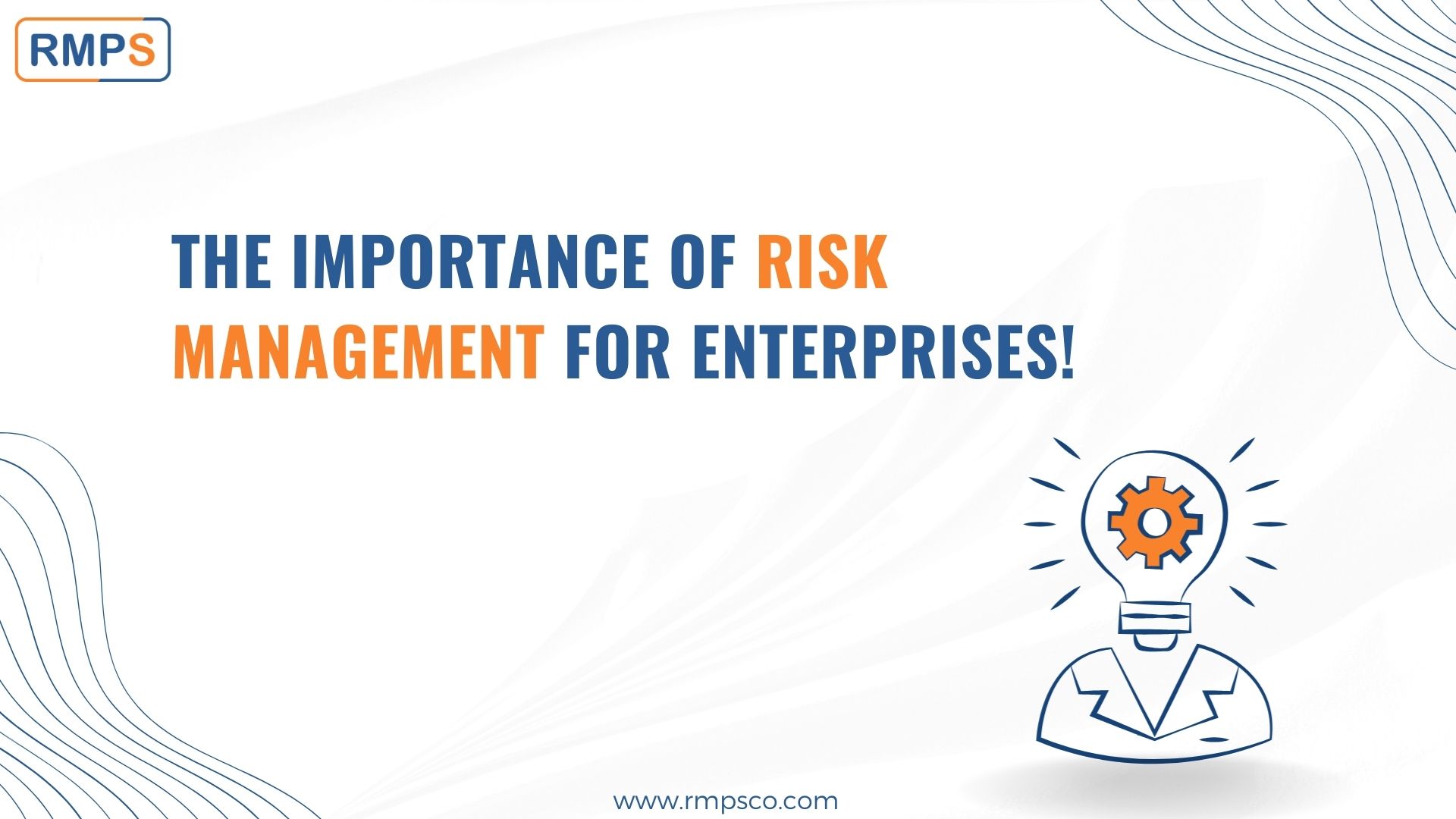Why the Importance of Risk Management Cannot Be Overlooked in The Current Economy
Why the Importance of Risk Management Cannot Be Overlooked in The Current Economy
Blog Article
The Critical Importance of Risk Management in Getting Organizational Goals
In the swiftly developing business landscape, the ability to navigate uncertainty has come to be a necessary. This is where Risk Management actions in, giving an organized approach to identifying, analyzing, and mitigating potential obstructions to proceed. It's greater than just a protective action - it's a calculated device, promoting resilience and development. As we check out the essential function of Risk Management in accomplishing business goals, one can't wonder yet help: how does this translate right into real-world success?
Recognizing the Idea of Risk Management in Organization

The Indispensable Function of Risk Management in Strategic Preparation
Integrating Risk Management into tactical planning acts as a safeguard for companies, securing their long-term plans with a strong foundation of preparedness and durability. Risk Management uses a framework for expecting uncertainties and creating ideal responses, making sure the company's survival and prosperity also in the face of difficulty. By integrating Risk Management right into strategic preparation, companies can transform these unpredictabilities right into possibilities for development and technology.

Strategies for Identifying, Assessing, and Focusing On Threats
Navigating the complicated landscape of risks calls for the application of details strategies for their recognition, analysis, and prioritization. The procedure begins with Risk recognition, utilizing tools such as SWOT evaluation, which helps in determining prospective risks and possibilities. Next off, Risk evaluation is conducted to identify the prospective impact and possibility of each Risk. Tools such as Risk matrices and impact-probability graphes are utilized for this. Finally, threats are focused on based on their prospective effect description and possibility, allowing companies to concentrate their resources on high-priority risks. This systematic approach ensures a comprehensive understanding of the Risk landscape, allowing organizations to make enlightened choices and effectively handle risks to accomplish their goals - importance of risk management.
Securing Organizational Operations Via Reliable Risk Management
In business landscape laden with uncertainties, efficient Risk Management plays a critical duty in securing business procedures. It offers as a safety shield, minimizing the damaging impacts of potential risks useful source and ensuring the smooth performance of all processes. By determining and examining potential dangers, Risk Management enables companies to establish robust contingency strategies. This preventive approach help in maintaining functional security, even when confronted with unforeseen scenarios. In significance, Risk Management is the lifeline that maintains the organizational operations afloat in the middle of turbulent waters. It makes certain not only the survival however the lasting growth of an organization, making it an essential tool in attaining service objectives. Therefore, organizations must invest in thorough Risk Management techniques to safeguard their procedures.

Transforming Potential Risks to Opportunities: The Power of Risk Management
While potential hazards could initially look like obstacles to business success, efficient Risk Management can change them right into chances. A positive method to run the risk of Management involves identifying, assessing, and focusing on dangers to design methods that transform them into prospective advantages. This procedure requires the advancement of a risk-aware society within the organization, encouraging individuals to check out dangers as potential catalysts for adjustment and growth, instead of mere threats. importance of risk management. Via this lens, possible hazards come to be chances to innovate, enhance processes, and reinforce durability. Therefore, by leveraging the power of Risk Management, organizations can not only safeguard their operations yet also spur development and accomplish their objectives in an unpredictable business environment.
Instance Studies: Success Stories of Risk Management Driving Service Objectives
Effective execution of Risk Management methods has produced impressive results in numerous companies, emphasizing the you could try this out qualities of this strategy. International firms like Microsoft and Google, for circumstances, have actually leveraged Risk Management to reduce threats and exploit possibilities, driving their service goals onward. These examples illustrate how effective Risk Management can not just guide organizations clear of potential risks but also guide them in the direction of their tactical objectives.
Conclusion
To conclude, Risk Management is fundamentally important in achieving organizational objectives. It uses a methodical strategy to determining, evaluating, and resolving prospective hazards and chances. Even more than simply mitigating dangers, it likewise promotes development, durability, and sustainable development. By integrating Risk Management right into calculated planning, organizations can better navigate uncertainties, guard procedures, and capitalise on opportunities, thereby lining up with long-term goals.
At its core, Risk Management is the process of determining, assessing, and addressing potential threats that could negatively impact an organization's operations or objectives. Next off, Risk evaluation is carried out to identify the potential influence and probability of each Risk. Threats are focused on based on their prospective influence and chance, permitting organizations to concentrate their resources on critical dangers. By identifying and assessing potential hazards, Risk Management makes it possible for organizations to establish robust contingency strategies. A positive strategy to take the chance of Management involves recognizing, assessing, and focusing on risks to design strategies that turn them into prospective advantages.
Report this page